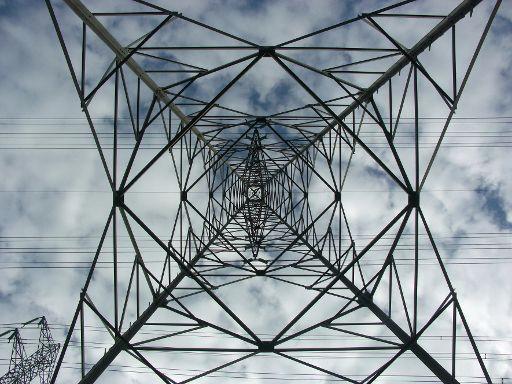
Published 27-02-2013, 11:12
 According to recent news reports, the
cash-strapped Greek government has come under pressure from the US to rule out
the sale of the gas operator DEPA to Gazprom. The US is reportedly concerned that
the Russian majority state-owned gas monopoly, which already supplies almost
90% of Greece’s gas consumption, will further strengthen its position in the
region. It is also concerned that Gazprom’s acquisition of DEPA would strengthen
Moscow’s hand in the complex geopolitical game, thereby increasing the chances
of Russia’s "South Stream” pipeline becoming the main supply of imported gas to
Southern Europe and dealing a blow to US-favoured alternatives such as the
Nabucco pipeline and the Trans-Adriatic Pipeline.
According to recent news reports, the
cash-strapped Greek government has come under pressure from the US to rule out
the sale of the gas operator DEPA to Gazprom. The US is reportedly concerned that
the Russian majority state-owned gas monopoly, which already supplies almost
90% of Greece’s gas consumption, will further strengthen its position in the
region. It is also concerned that Gazprom’s acquisition of DEPA would strengthen
Moscow’s hand in the complex geopolitical game, thereby increasing the chances
of Russia’s "South Stream” pipeline becoming the main supply of imported gas to
Southern Europe and dealing a blow to US-favoured alternatives such as the
Nabucco pipeline and the Trans-Adriatic Pipeline.
Greece is not the only EU country currently subjected to US lobbying over Russia’s alleged ambitions in Europe. Similar efforts have been undertaken in the Czech Republic over that country’s nuclear energy plans. The Czech government is aiming to capitalize on anti-nuclear energy sentiment in neighboring Germany and Austria, triggered by Fukushima disaster in 2011, by modernizing and expanding its Temelin plant: two new reactors to be added by 2025 at a cost of $10bn will allow exports to those countries to be boosted. Only two bidders remain – the US’s Westinghouse and Russia’s Atomstroyexport. In January 2013 then Secretary of State Hillary Clinton, no less, visited Prague to lobby on behalf of the US company, warning the Czechs about the perils of cooperating with the Russians.
Washington’s concerns notwithstanding, it is well understood in Europe that diversification of supplies (especially in strategic commodities such as hydrocarbons) makes perfect business and (geo)political sense. Europeans also understand that Russia’s strong position on the European energy market stems not from some Kremlin conspiracy; rather, it simply reflects the complementarity of Russia’s natural resource endowment and Europe’s demand for energy.
Diversification not only promotes competition (while putting downward pressure on inflation); it also protects the vital interests of both the supplier and the consumer. This is because both monopoly and monopsony (i.e., "buyer’s monopoly”, arising from the dominant consumer’s role as the main or sole supplier of revenues to the seller) create incentives for abuse of the leverage they create. In the long run, diversification is beneficial for all parties concerned.
Russia, too, is fully aware of these economic realities and has acted accordingly. Indeed, Gazprom’s Nord Stream and South Stream pipelines, which will bypass Ukraine and Belarus, are textbook examples of a strategy aimed at breaking a transit monopoly. Kyiv’s reduced ability to put pressure on Gazprom (by abusing its monopoly in the transit of gas to the EU) has opened a new, more hopeful chapter in Europe’s energy security. The EU will get more reliable supplies and Gazprom more reliable revenue streams. For its part, Ukraine will come under greater pressure to finally grasp the nettle of structural reforms and wean its economy off subsidized Gazprom gas. Hence all three parties stand to win in the long run.
Meanwhile, peddlers of the "Russian menace” overlook the fact that there is currently intense competition on Russia’s own domestic gas market, with Gazprom’s export monopoly being increasingly challenged, including by top government officials. At the same time, the company’s position is being further weakened by the shale gas revolution, the increasing popularity of LNG sold on spot markets and the substitution of gas by other fuels in the EU electricity generation sector. In short, the reality is that Russia’s ability to dominate Europe by pulling its gas strings is in any case increasingly being eroded both by internal (Russian) and external developments.
Questions:
- •Given these facts on the ground, is there justification for the US to relax its latest anti-Russia lobbying campaign in Europe?
- •To what extent is the US seeking to promote its own economic interests under the guise of (unfounded) geopolitical concerns (for example, the Czech nuclear plant order would safeguard some 9,000 jobs at Westinghouse for a decade)?
- •Or perhaps the real reason for Washington’s waving its anti-Russian flag is the need to bolster the justification of the US’s strategic presence in Europe?
 The topic for the Discussion Panel is provided by Vlad Sobell,
The topic for the Discussion Panel is provided by Vlad Sobell, Editor, Expert Discussion Panel
Professor, New York University, Prague
Editor, Consensus East-West Europe
Expert Panel Contributions
Patrick Armstrong
Patrick Armstrong Analysis,
Ottawa, Canada
Practically the moment hydrocarbons were discovered in the Caspian Sea we were solemnly informed by the anti-Russia lobby that Russia must be cut out of the loop. Moscow was fomenting wars in order to control pipeline routes, its dearest desire was to dominate these routes, and, presumably, being Russians, would then force the world to its knees like some mad scientist in a movie. These hysterias cropped up again in the 2008 war – Moscow was going to seize the pipeline through Georgia. US business interests were never mentioned at all – it was all geopolitics and security – the so-called New Great Game. And it was a zero-sum game in which Russia could not be allowed to score a point. (Or cut into the profits of a US company…)
But here we are today and all is calm. Customers have various routes and suppliers; producers have various customers and routes. This is one of the meanings of "energy security”.
The American campaign to – what is the word? – contain? hamper? impede? circumscribe? cripple? Russia is not working very well. The "coloured revolutions” are gone leaving nothing in their place; Russia is building pipelines and customers are participating in the building; Russia’s economy is growing and forcing people to take it seriously.
It hasn’t conquered Georgia and seized the pipeline; neither has it conquered Azerbaijan to get at its oil; it isn’t demanding rack-rents from its customers using its "gas weapon”. Indeed it is proceeding rather normally and quietly.
Even though the wolf doesn’t come, the boys keep shouting. Better they, and we, should pay attention to real threats.
 Dmitry Mikheyev
Dmitry MikheyevFormer Senior Fellow at the Hudson Institute, teaches "Leadership in the 21st century” at various business-schools in Moscow
Do these Greeks and Czechs really think that Gazprom, Rosneft and Atomstroyexport are simply doing business, just like ExxonMobil or Westinghouse? How naive and reckless of them! These are the Kremlin’s octopuses, which threaten to stifle liberty and democracy in Europe, Central Eurasia and elsewhere, and they do this in a friendly embrace. Most Europeans, for that matter, seem unable to grasp the subtle geopolitical game the devious Russians and Chinese are playing.
To assist them in reaching the correct understanding of their sad predicament, we might turn to Stephen Blank, professor of National Security Affairs at the United States Army War College, whose job is precisely that – to unearth the hidden agenda of China-Russian strategy. "America's paramount objective has been to uphold these states’ integrity, independence, sovereignty, and security against Russo-Chinese efforts to dominate them and circumscribe their freedom,” writes Professor Blank. "[Russian] energy is not just used to obtain classic spheres of influence, but also to criminalize and subvert governments and societies, as well as erode the alliances that have ensured European security and stability, the EU, and NATO.”[1] In other words, American overseas bases are guarding liberty, democracy, law, and order from the new "stealth imperialism” of Russia and China.[2]
This new imperialism, unlike the old one, is based on a very kovarnyi [insidious] ploy. First they make the unsuspecting Europeans addicted to Russian oil and gas and to Chinese affordable consumer goods and cheap credit. Then, one day, they cut it all off. European cars stop in their tracks, factories close, houses get cold, the Euro becomes worthless, shops empty, and the desperate Europeans surrender to the Russian-Chinese neo-imperialists. While the danger of losing freedom is all too apparent to Americans, who are known for their exceptional love of freedom, it is not obvious to the "Old Europeans”. One can see it from how eagerly they are digging their own grave, namely in financing the Nord and South Stream pipelines. Meanwhile, when in 2015 the South Stream pipeline is complete, Gazprom’s tentacles will spread to Bulgaria, Serbia, Hungary, Croatia, Greece, Slovenia, and Austria into Italy. Really, these people are so foolhardy, they are totally oblivious of the approaching doomsday.
Considering their cultural proclivities toward authoritarianism, Germans seem especially reckless. This is why the US has to altruistically keep 287 military bases and installations in Germany. As Condoleezza Rice famously quipped, "America has to be in [Europe] to keep Russia out and Germany down.” Other "Old Europeans” are no less naïve and gullible. So, to save stupid Europeans from themselves the US has to keep 89 bases in Italy, 57 in UK, 18 in Belgium and 21 in Portugal ... At least the "New Europeans” don’t have to be lectured about the insidious and dangerous Russians. The Poles are happy to have 6 new American bases already, Romanians – 4, Bosnia and Herzegovina – 2. In fact, all former European vassals of the Soviet Empire have at least one American base on their territories.[3] They can thus enjoy both Russian gas and protection of their liberty from the Russian threat. Except for Ukraine, of course; but that’s another story.
[1] Stephen Blank, Russian Energy and Russian Security, The Whitehead Journal of Diplomacy and International Relations. Vol.12. Iss.1, 2011 and "U.S. Interests in Central Asia and Their Challenges,” Demokratizatsiya. Vol. 15. Iss.3, 2007.
[2] Keith C. Smith, Russian Energy Politics in the Baltics, Poland, and the Ukraine: A New Stealth Imperialism? (Washington, DC: Center for Strategic and International Studies, 2004).
[3] Sources: Wikipedia, US Military Bases Map, 2009, Global Policy Forum, Transnational Institute. See also Chalmers Johnson, The sorrows of empire (Metropolitan Books, 2004) and Kent E. Calder, Embattled Garrisons (Princeton University Press, 2007).
 Alexei Mukhin
Alexei MukhinPresident, Center for Political Information
Moscow
People usually attribute to others those negative streaks they are unable to admit to having them themselves. This is a special type of psychological defense from neurosis; the brain protects itself from unnecessary "overload”. The same thing happens to states that pursue certain goals but have to hide them from the unwelcome attention. Sometimes those very states start believing in the false images they invented.
In 1991-1992 the US, to its own surprise, lost a convenient enemy – namely the Soviet Union. First, Washington triumphed, but then it found that it was deprived of a powerful driver for the development of foreign markets, an excuse for very high defense expenditure without the need to justify it, and, most important, an overriding goal, which is the very essence of an empire – a permanent war with the "main enemy”.
The US eventually found a way to cope with the latter problem. International terrorism, global drug trafficking and the rogue states somehow replaced the "great and evil” USSR.
But demonization of Iran and Syria cannot convince the stubborn Europeans that they need the protection of the mighty US army from the "energy blackmailers” (in particular, Russia). The logic of such reasoning is not merely poor; there simply is no logic. The United States therefore needs a strong Russia as never before. Numerous US diplomats have recently expressed such a stance.
How else can the US explain to the Europeans that they cannot receive gas from Kazakhstan and Turkmenistan? How can Washington explain to them that it is impossible to deal with the Islamic regime in Iran and the supporters of Bashar Al-Assad in Syria because Russia and China put their veto in the wheels of the democracy machine, which has traveled about the African deserts for so many years?
The US surely cannot tell them that China has attained too strong an economic position on the African continent and is about to dictate to Washington when and where its gold reserves should be dispatched. However, it is possible to come to an agreement with China as with any creditor: it will not kill the goose that lays the golden egg. But it is difficult to negotiate with Russia, despite its also being a large creditor of the US.
Russia paid off its debts to the IMF, became friends with Germany and China, started integration processes in the post-Soviet space and established a customs unions; now it is about to set up a military alliance there. Moreover, its President, since the Munich speech in February 2007, is "inconvenient” despite the fact that he was re-elected for a third term. And an old time-tested method proved useful here: if you do not know how to talk to someone, start abusing him/her. After a while you will learn how to use this person, and he/she will be more amenable.
Today we are not surprised, for example, that foreign non-profit organizations have hastily and groundlessly curtailed the financing of their activities in Russia in order to cause a strong public reaction against the Kremlin. True, the Russian authorities have tried to rectify that situation. To offset the departure of foreign financial donors from Russia, about 3 billion rubles have been allotted for the needs of NGOs in 2013, and the Ministry of Economic Development has adopted a raft of measures to support socially-oriented organizations.
However, hostile acts have continued. Thus, the management of the American NGOs the National Democratic Institute (NDI) and the International Republic Institute (IRI) announced that owing to alleged threats by the FSB to prosecute the Russian employees of these NGOs on the charge of treason, these organizations have not only closed down their offices in Russia but also relocated their Russian employees to Lithuania.
Then there is the case of the death of an employee of the OJSC Tactical Missiles Corporation, Alexander Dolmatov. He participated in an opposition rally on 6 May 2012 and hurried off to The Netherlands to seek political asylum. Unfortunately, he committed suicide while being held in a Dutch detention center. To the surprise of Russian observers, it has been alleged that Russian intelligence services were involved in his death. Judging by the fragments of an official transcript of a conversation between Dolmatov and a representative of the Dutch migration service published in The Netherlands, Russian intelligence service had apparently tried to recruit him. It cannot, therefore, be ruled out that the Western press will link the death of Mr. Dolmatov to the secret directive allegedly issued by Vladimir Putin allowing the killing of Russian defectors on the territory of other countries. In any case, some Western sources are already actively promoting this account of events.
In my view, the raising of tensions between Europe and Russia is designed to distract European countries from their pressing problems: the spread of radical Islam in the North African countries, the destruction of international law as the primary mechanism for the resolution of inter-state problems and the attempts to delegate these powers to the United States, and the efforts to preserve the dominant role of the dollar in the global economy.
Edward Lozansky
President American University in Moscow
Professor of World Politics, Moscow State University
Ask any Washington politician to give an honest answer to the following question: What is more important, the promotion of democracy or energy geopolitics? Tell them that their answers are off the record, so they can relax. Some people say that the notion of an "honest politician” is an oxymoron, so it is no use asking that sort of question; and yet I will bet that most of them would admit that energy geopolitics is more important than democratic ideals. Such are the facts of life.
When a country's economy and security are at stake one can safely assume that democracy will be about the last thing politicians care about. Saudi Arabia, Kuwait, Qatar and some other Gulf states are hardly paragons of democracy, and yet still they are on the list of America's most important and trusted allies. Finding any criticism of those Arab sheikhs and kings in statements by US public figures or in US media wouldn’t be at all easy.
The same goes for the Caspian basin. The state of democratic institutions in practically any country in this region makes Russia look like a true beacon of democracy. And yet it is Russia that gets all the bashing for its poor record on democracy while others not only get a free pass but are often counted among America's most valued strategic partners, if not allies. That is, of course, if they are ready to toe Washington's line and transport their energy resources via routes bypassing Russia. This is called "strategic pipeline policy”. The US envoys pay frequent visits to these countries to explain to their elites why it would be wise for them to follow precisely such a policy, while the talk about free trade and the invisible hand of the market is reserved for the more trusting liberal reformers in Russia.
Undermining Russia's influence may take different forms. Remember the Orange Revolution in Ukraine? Those who believe that it was all about the advancement of democracy and human rights are oh so very naive. At that time, both parties in the Ukrainian presidential elections were guilty of unashamed fraud, but the West chose to back only one group of fraudsters – the openly and rabidly anti-Russian ones. Actually, the British human rights Helsinki Watch Group reported at the time that it found more electoral irregularities on Yushchenko's part than on Yanukovich's – but who cared? The most important issue was that Yushchenko was considered to be a more effective tool in undermining Russia's geopolitical influence in the post-Soviet space.
Last week, speakers at the Heritage Foundation called on Obama to "expand political and military relations and economic ties with key [Eurasian] countries such as Ukraine, Azerbaijan, Kazakhstan, and Uzbekistan to balance off Russia." Are any of these countries really democratic? If not, why should America build military ties with them? The answer is in the quote itself: to balance off (read "undermine”) Russia.
There's an interesting omission on their list: Georgia. In 2004 it was Saakashvili who, in the view of Bush's administration, could do a better job than Shevardnadze of limiting Russia's influence in the region. This despite the fact that Shevardnadze was a close personal friend of State Secretary Jim Baker and other influential Washington politicians.
Anyone who had an even limited access to information about Georgia was aware that Saakashvili's democratic credentials were highly questionable. They also knew all too well that it was he who had started the August 2008 war in South Ossetia. However, Saakashvili was viewed in the West as a hero, a latter-day David fighting Goliath. One could understand why politicians are telling lies, which is more or less expected; but why did the West's free media do the same almost in unison? Why do some of them still keep repeating those lies? It's a mystery, unless, of course, one accepts the obvious: these people are not engaged in journalism; their business is propaganda warfare.
In any event, these days there is hardly any mention of Saakashvili; no more calls for close ties with Georgia. All that is in abeyance – until it becomes clear whether the new Georgian leadership is willing to continue to play the role of an obedient Russia basher or not. So far, the prospects do not look encouraging for the cold warriors. So "judgment reserved”, their silence seems to say.
Russia's oil and natural gas industries are important players on the global energy market and by extension in geopolitics. Until the Washington establishment realizes that it is in America's best economic and security interests to groom Russia as a strategic partner one should not expect the termination or substantial modifications of the above-mentioned strategic pipeline policy. Another obvious fact is that such a policy pushes Russia away from the West – into the East's eager embrace. Everyone, but everyone, needs energy.
This reorientation is already happening, and it may have very serious geopolitical and geo-strategic consequences – certainly not to the West's advantage. It would therefore be highly advisable for American and European policymakers to develop a wiser policy toward Russia, one that would be more beneficial to the West’s economic and security interests.
Peter Rutland
Professor of Government
Wesleyan University
Since the 1990s the US government's policy has been to promote diversification of energy sources for Europe. This served the strategic goal of lessening Russia's potential leverage over the US's European partners, especially Germany. The development of new pipelines from the Caspian Sea across the Caucasus would also strengthen the newly independent states of Azerbaijan and Kazakhstan by allowing them to bypass Russia when exporting oil and gas.
However, life moves on, and 20 years later it is not clear that the policy of trying to block Russia's efforts to vertically integrate its natural gas exports makes any sense. It is unclear why the United States should be more worried about European dependency on Russian exports than is say Angela Merkel's government in Germany.
The shale revolution that took off in the US in 2008 has changed all the calculations. Natural gas which is selling for $12-15 per 1,000 cubic feet in Europe is selling for $3-5 inside the US. If the US really wanted to help European market they would authorize the export of liquefied natural gas from the US. But this may not happen, because US industrialists are lobbying for the benefits of cheap gas to be reserved for US manufacturers.
Russia's Gazprom is facing a severe challenge. Even if US gas is not exported, supplies from other parts of the world will come in and exert a downward pressure on European gas prices. For years Gazprom has tied their long-term gas contract prices to the price of oil. With the surplus of gas, its price has fallen below the oil price, forcing Gazprom to renegotiate those contracts and even pay $4 billion compensation to its European customers for last year's deliveries.
In this context Gazprom needs to create more certainty in its market, and one way of doing this is vertical integration down the supply chain. Political interventions to block such moves only adds to the uncertainty, increasing the risk premium and making it harder for Europe's gas industry to plan ahead.
 Mark Sleboda
Mark SlebodaSenior Lecturer and Researcher
Department of International Relations and Centre for Conservative Studies
Sociology Faculty, Moscow State University
America’s ceaseless interference into European-Russian relations should be taken for granted. It is not likely to ever stop. The US is locked into a paranoid post-Cold War conception of seeking "absolute security” (necessitating every other state’s vulnerability) amidst faltering Hegemony. Everything is a security threat for it, including a strong prosperous Russia and good European-Russian relations which is a challenge to the US’s hub and spoke conception of international relations, where every country’s relations with other countries must be moderated through Washington.
Russia should just ignore America’s machinations into European-Russian relations; their inevitability is equalled only by their increasing irrelevance. What Russia must seriously contemplate and reassess is its long-term economic and national security in its trouble-prone relations with Europe. Although the US adds fuel to the fire, the scaremongering towards Russia and Gazprom has plenty of homegrown European sources, especially the UK, Poland, and the Baltic States. The energy relationship is a two way street. Russia and Europe are presently interdependent and mutually dependent on each other and will be for the foreseeable future. As energy consumers and importers, European states seek to guarantee a constant supply of energy at the lowest price possible. As energy suppliers and exporters, Russia seeks to guarantee a high constant demand at the highest price possible.
The social benefits Gazprom provides to Russian citizens are often overlooked. With Gazprom’s profits as a state-owned strategic company paying such a large portion of the Russian budget in relation to GDP, Russia is able to afford such low personal income taxes and domestic energy utilities, well below global market prices. That all Russians benefit to some degree from the energy bounty that comes out of Russian soil seems only natural to us, although the reverse is actually true in other parts of the world such as the US where taxpayers actually subsidize big energy company profits.
Too many EU technocrats and elites continue to view a Russia that does not politically and socially mirror themselves as a threat. They are both dependent on Russian gas and schizophrenically hate Russia for their dependency. Russia currently provides around 30% of Europe’s gas demands. Europe’s energy demands and Russia’s share of that market are both only expected to increase. The situation is not going to change in the medium term. The so-called "shale gas revolution” is ridiculously overhyped and thus being used simply as leverage to negotiate lower prices. The high infrastructure and transport costs associated with liquefied natural gas (LNG), and the environmental damage, questionable reserves, and profitability problems of fracking , as well as the long-term trend towards vastly increased gas consumption in the US, EU, and China ensure that shale gas is no threat to Russia’s energy dominance with Europe.
The biggest threat to Russia regarding the economic security of energy supplies is the EU using political tools such as targeted legislation including the ‘Third Energy Package’, blocking Gazprom from investing in European gas infrastructure, and a politically-motivated anti-Trust probe against Gazprom to try to rewrite the rules of the game, break standing long-term contracts, and rearrange established market conditions and principles into a "new reality”, as they phrase it, that is to their benefit and that Russia must just learn to accept. This is particularly ironic and hypocritical, since one of the primary supposed rationales for the EU’s actions is their accusations that the Russian government uses energy as a political tool of influence.
The clearest example of Europe’s use of political legislation as an economic weapon is the recent furor Europe is raising over linking the price of gas to oil in long-term contracts, a long-established stabilizing global industry practice that in turns has benefited both consumers and suppliers. As recently as 1999, Russia’s European customers were demanding that gas should follow oil price drops in contracts. Now those same policies are working against Europe as gas demand and price has temporarily dipped globally with the ongoing economic recession in the West. European budgets are tight with austerity policies, so they are desperately trying to pull out of existing contracts and decouple oil-gas price links with the pressure of anti-trust probes into Gazprom. Europe’s new "Third Energy Package” legislation, forcing a separation of supply and transport, actually threatens Russia’s pipeline capacity ability to meet cold winter surges in European demand and hence their contractual obligations to ensure European energy security.
The truth is that politics and economics are inseparably intertwined, particularly with regards to strategic sectors such as energy, despite ideologically-motivated fictions to the contrary. Who asks questions when the EU as a matter of policy grants or withholds economic treaties and preferred market status on the condition of adoption of its political-economic system and societal values as a prerequisite? Russia’s use of Gazprom, a state-owned strategic company, in pursuit of its own national interests, is no different, or any more or less wrong. Russia and Gazprom must stick to their guns on gas.
Europe dearly wishes that Gazprom wasn’t a state company that has a monopoly on Russian gas exports. If this monopoly was broken up, European gas prices would drop from internal Russian competition…as would Russian budget revenues. Similarly Russia does its best to inhibit European countries acting as a single entity to negotiate gas deals, as the competition among consumers is to its benefit. But just Russia has to face an increasingly unified EU in energy negotiations, so Europe will just have to learn to accept the reality of Gazprom as state company with a monopoly on gas exports.
Putin rightly noted in his defense of Gazprom that it is "incorporated beyond EU jurisdiction, and is a company which under Russian law exercises functions of public importance and has the status of a strategic organization controlled by the state." Europe can pass all the legislation targeting Gazprom for price leverage that it wants, but Gazprom is a Russian state company, and if Europe wants to continue receiving the Russian gas it needs, all this political manoeuvring on both sides is just another level of consumer-supplier negotiation.
As Brussels tries to forge the EU into one unified entity on energy security to jointly pursue the EU’s common economic interests as consumer, Russia should seriously revisit the solidification of a cartel of gas-exporting countries, similar to OPEC for oil, which would unify and look out for the interests of suppliers.
Europe has every right to seek diversification of supply in pursuit of greater energy security if it feels the need to do so. Likewise, Russia can and must actively pursue diversification of consumers for its energy resources in order to meet its own economic security concerns. It is well past time for Russia to turn the "China bluff” into reality by completing a mutually acceptable long term gas supply contract with China, construct the proposed Altai gas pipeline, and do everything possible including investment into LNG terminals to seek further energy consumers in Asia including Japan, South Korea, and even India.
This is entirely in keeping with Putin’s foreign policy priority of an economic "Asian Pivot”. Unlike Europe, China only seeks to do business; it does not hypocritically moralize and try to interfere in our domestic politics and society, demanding we refashion our identity, political and economic systems, and values based on their crumbling template. An ‘energy pivot’ to Asia is not only a matter of good business and economic security for Russia, but a vital national security, sovereignty, and identity preservation concern.
 Vlad Ivanenko
Vlad IvanenkoPhD economics, Ottawa
In his 1916 work "Imperialism, the Highest Stage of Capitalism”, Vladimir Lenin cites British magnate Cecil Rhodes: "My cherished idea is … to save … the United Kingdom from a bloody civil war. We colonial men must … provide new markets for the goods produced in (our) factories. The Empire, as I have always said, is a bread and butter question. If you want to avoid civil war, you must become imperialists.”
I have quoted this passage because Russo-American conflicts are still conventionally portrayed as ideological. In reality, the elites of both countries have much more in common with each other than with the lower classes of their respective countries. Ex-communist leaders of the former Soviet Union are nowadays even greater zealots of capitalism than their American peers. Their perception of internationalism is reduced to the spreading of wealth they receive from their countries’ natural resources to real estate assets in Florida or on the French Riviera.
Still, the convergence of aims does not guarantee a trouble-free relationship. The problem is that having established control over the domestic wealth, Russian tycoons have necessarily shifted their attention to establishing control over markets abroad. In short, they demand a change of the status quo, opening the way for a new round of conflicts – this time in the realm of imperialism.
The paradigm of imperial competition implies the constant shift of power from the declining empires to the new entrants. When the battle line for foreign markets coincides with the delineation of competition within the national economy, "national interests” are invoked on either side to drum up domestic support for international clashes. The conflicts become especially acute when changing circumstances force the claimants to believe – erroneously – that they may gain the upper hand with a bit of extra effort. Then, if the balance persists, a "hot war” may flare up.
The energy conflicts that Vlad Sobell mentions assume certain meaning within this imperialist framework. First, one power is attacking (Russia) and the other (the US) is defending the status quo. Second, American appeals to the national interests of Greece and the Czech Republic show the US’s reluctance to get involved directly and, hence, relative insignificance of these issues to the American magnates. Third, Russia has not elevated these issues to the level of "national importance” (unlike the Magnitsky bill that has triggered a bout of nationwide propaganda on the Russian side.) Thus, the two episodes seem to be low-key skirmishes between two otherwise compatible powers – Russia and the US.
In tactical terms, the end result of these temporary conflicts will be inconclusive. The Russian authorities will continue exploiting financial difficulties experienced by EU lame ducks such as Greece in order to convert their dominant gas supplier’s position into that of gas monopoly. Greece will be prodded by the EU (on America’s advice) not to sell gas assets to the highest bidder (Gazprom), with the hope that help is coming in the form of new gas fields in Europe (Poland and Ukraine) or increasing delivery of liquefied natural gas (LNG) from non-Russian sources. That help may take years to materialize if it ever comes at all.
The Czech nuclear project seems to be another pie in the sky. Given current aversion to nuclear energy in the EU (Germany) and the deferment of several nuclear projects in Eastern Europe (the Visaginas plant in Lithuania, the Belene plant in Bulgaria, and the Cernavodă plant in Romania), it is difficult to see how the Czech project can succeed. Most likely, this business conflict between Westinghouse (owned by the Japanese) and Rosatom Overseas (an important but not critical player in the Russian politics) will peter out for the lack of appetite on either side to take unwarranted financial risk.



_jpg/250px-ElbeDay1945_(NARA_ww2-121).jpg)





